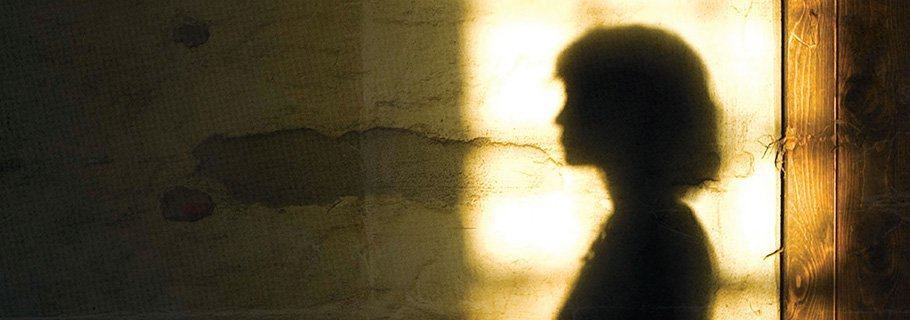I don’t watch a lot of movies these days, largely because it’s rare that I can find something that promises to reward me more richly than spending the same amount of time in a good book. That said, I do enjoy the occasional miniseries when I can catch it on Netflix or iTunes; I guess I find it easier to part with forty minutes than two hours. Even with that limited exposure there’s something I have observed and something that has spelled the end of my interest in more than a few shows: Rape is in.
I remember reading an article a few years ago where an entertainment writer was asking, “What’s next?” She wrote about how television and movies had ramped up the sexual content on the screen, first by way of innuendo and then by way of explicit display. She suggested that the next frontier might just be sexual violence, and it seems that she was right.
Television has never been crueler to women than it is right now.
Recent articles at a host of publications have pointed this out, providing a long list of contemporary shows that have made rape a significant plot point: Game of Thrones, Downton Abbey, Scandal, House of Cards, Mad Men, The Americans, Sons of Anarchy, American Horror Story, Bates Motel—and many more besides (including a new show called Tyrant that has several rape scenes in the opening episode alone). Sometimes this rape is shown explicitly or psuedo-explicitly, while other times it is recounted as a past event. But either way, this much is clear: Television has never been crueler to women than it is right now.
I have very little experience with most of the shows listed above. I try to screen my shows as well as I can (IMDB’s Parents Guide feature is my friend) and not even get into ones that tiptoe along the edge of morality or, even worse, go barging right past it. I have an extreme aversion to sexual violence and am so deeply affected by it that I simply have to avoid it in television or movies. But as I read these articles about rape and today’s programming, it seems that rape fulfills various plot functions:
- Sometimes rape is used to explain why a character is the way she is. In these cases the rape is usually in the past and the viewers learn about it as a means to better understand a central character. This is apparently the case in House of Cards and The Americans.
- Sometimes rape is used as a means of character development. If a bad man needs to be made even worse, rape fulfills that purpose and is typically shown in some detail. This is apparently the case in Tyrant and Game of Thrones.
- Sometimes rape is used simply as a plot device meant to introduce dramatic tension, such as when the sweet and flawless character of Downton Abbey’s Anna Bates was raped, leaving the viewer to question whether her marriage would survive and whether her husband would find out and take revenge.
However it functions and however it is presented, rape is suddenly common in television programming. And it concerns me. It especially concerns me especially because so many Christians watch and enjoy these shows.
The area of Christians and the arts is one I do not write about very often, at least in part because when I have done so in the past, there is always a person way smarter than me and way better read than me who replies with an extensive theology and philosophy of art and an explanation as to why Christians need to explore depraved themes to find the redemption beyond them. There is a part of me that understands that. The worst Christian art is the Christian art that denies the obvious—that we live in world marred by all manner of depravity. Sexual violence is a sad, sick, and far-too-common fact of life in a world like this one. But does that justify its prevalence in programming? Does that justify us watching it? Does it justify it as a common theme in our entertainment?
As a family we have been reading through 2 Samuel and have just had to grapple with the sickening story of Tamar’s rape by her own half-brother (see 2 Samuel 13). This is a story of rape that God saw fit to include in the Holy Bible—one of several biblical portrayals of sexual violence. But when I look at it closely, I see a world of difference between it and television programming.
The most significant difference is this: It is not meant to be entertaining. When we thumb the remote and turn on the television, or when we open a browser and type in “n-e-t-f-l-i-x”, we do so to be entertained. When we open the pages of the Bible we do so to be changed. Within the great drama of Scripture, Tamar’s story serves not to entertain, but to inform and reform. It is sin told sinlessly. It avoids being salacious and being explicit. It displays the far-reaching consequences of David’s sin, it highlights the sickening idolatry of mankind, it explains some of the battles that will soon come. Best of all, it calls the reader to cry out for a Savior, another Son of David, who can fully and finally put an end to such horrors. It is a far cry from rape as a shocking plot twist meant to generate buzz, rape as character development when all else has failed, rape as the explanation for vengeance.
Here is what I wonder, and here is what we ought to be asking ourselves: If Christians won’t allow explicit scenes of sexual violence to keep them from watching television shows, what will? If scenes of rape are not over the edge, what is? If we won’t draw the line there, will we draw it anywhere?
Image credit: shutterstock










